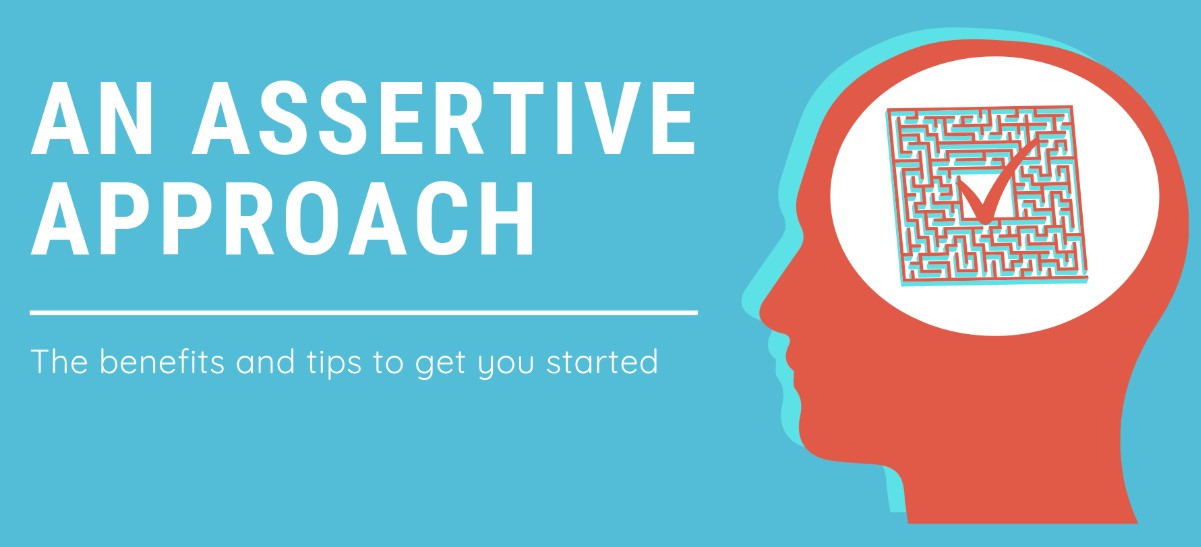Assertiveness is a kind of behavior that is used to denote the need for somebody in a healthy manner. Assertiveness means you protect what you want but do not abandon the needs of others. Most people try to be assertive in some ways. A confident person is someone who makes decisions quickly and assertively without any hesitation. Whether in work or life, you should also be assertive when tackling a problem. It’s the key to unlock your talent, experience, and values, and open the door to your future and career path. Being an assertive person, you do not tend to be afraid of the surrounding factors that change your decision anymore.
However, not everyone is assertive or quick in making decisions at work and in life. Many people want to be assertive in every situation, but they cannot overcome fear or anxiety. Assertiveness can be formed through practice. If you want to be more confident at work and in life, refer to these ten tips.
Let’s see what they are!
1. Understand The Root Cause Of Your Hesitation
You should consider what causes your hesitation – anxiety or fear. If your hesitation stems from the fear, ask yourself to deal with it instead of avoiding it and even repeat the process many times to practice the confidence. If the root cause of your hesitation is anxiety, do not think about it too much. Whether you are anxious or not, the matter is still going on and will affect you negatively if you are always worried about it. Make a habit of trying your best to complete a job and accepting any challenges.
2. Recognize Your Values
Recognizing and respecting your values is very important in building your assertiveness. Many people may have a thought of “I’m not good at this field no matter how much I try” or “it would be better if someone else took care of my job.” If you think and act like these people, stop it immediately.
If you still doubt about yourself, take the time to think about the efforts and contribution you have made at your workplace, as well as the help you have done for your friends or people around you. And if you realize that you’ve done well, ignore the criticisms and judgment that evoke your shame. However, comments and criticisms are sometimes useful. If they point out your shortcomings, think of them and correct yourself.
3. Understand The Difference Between Aggressive And Assertive
Many people choose to be silent and follow the pre-order of others because giving opinions or arguments, in their viewpoints, will make things worse and they will be assessed as aggressive. However, the fight for your opinion (of course, it is the right and reasonable) is one of the elements that make up your assertiveness.
To be simple, assertiveness is the evaluation of your emotions, thoughts, and those of the others. And aggression is violence, hostility, forcefulness, or determination. Understanding these two different concepts will make you no longer a kind of easy-going person who always accepts others’ needs easily. And now, it is time to give opinions and fight for your goal.
4. Keep Learning And Growing
The more effort you spend on learning and growing, the more knowledge and skills you gain. The assertiveness and self-confidence come from the knowledge you have and the attitude at work and in life. Therefore, you have to improve yourself and try your best in every situation. Use your knowledge and experience to benefit the world around you, and you will know the right direction and be confident in each of your decision. As your efforts and dedication are recognized, you will gain more confidence and be more assertive in every situation.
5. Practice And Prepare
Practice and preparation significantly influence on your assertiveness. When you have to solve a problem, imagine all possible situations that may happen and think of the solutions that are right for them. Next, talk to your colleagues or relatives to ask for useful tips or advise. And then, try modifying something that you find it is necessary for your solutions. If you do well, you can handle the task effectively. Conversely, when there is no practice and preparation for the problems around you, you will be very confused when facing them, evenly you can give up because you do not have any experience to handle them.
6. Know Your Rights
Understanding your rights at work and in your daily life will help you make more accurate decisions. At the workplace, your rights are mentioned in the company’s regulations or in the labor contract you signed. In life, your rights are governed on legal documents. You can find them on the Internet easily. However, there is no certainty in real cases. This depends on the intimacy between your employer/relatives and you. In general, grasping your rights will be an important key for you to be more assertive when deciding on any issues. Knowing your right is also a way to protect yourself in situations that you are being abused or bullied.
7. Know Your Boundaries
Respecting your boundaries is an important step in regulating your psyche and helping you to be more assertive. Ask yourself how much you can endure, and what your expectations and limitations are. Be respectful of all your expectations and limitations as they help you determine your work and abilities. Once you have mastered them, you are sure to adjust your work, avoiding being tired, depressed and exhausted, leading to the fact that you will perform well, bringing a great impact on your mental clarity and assertiveness.
8. Make A Decision For 5-10 Minutes
Try to set a time limit when making any decision to 5-10 minutes. Then, you will evaluate the possible best and worst outcomes and ask yourself if you can live with one of them. If you can accept that result, keep this habit of quickly deciding. Of course, in the 5-10 minutes, you also have to consider the related conditions as well as use your knowledge and understanding when making your choice. If you maintain this habit, you will be more assertive when deciding on any issues.
9. Divide A Decision Into Smaller Ones
When you have to make a big decision, try dividing it into smaller ones. Splitting a big decision will help reduce the risk of failure and allows you to adjust faster. This division also helps you to ease the pressure of making choices in a short time. Handling small tasks is always more comfortable than wrestling with a big one. You will feel less depressed or stressful when making a big decision. In case you make any wrong decision, you can turn back quickly.
10. Record The Answer To The Question Why? How? And What?
It will be easier to decide if you understand what you are trying to achieve, why it must be performed, and how it works. Make a note of the tasks (why), values, and strategies (how to do it), and factors such as directions, limits, and disadvantages that affect your decision. With this background, many questions will have their answers, even faster than the debate time. So making a decision will be many times faster.
Being assertive means a lot to you and the people around. It helps you to reduce misunderstandings, restrict procrastination, protect your rights and promote at work. Hopefully, through the ten tips above, you can have more lessons to build your assertiveness. Thanks for reading!









